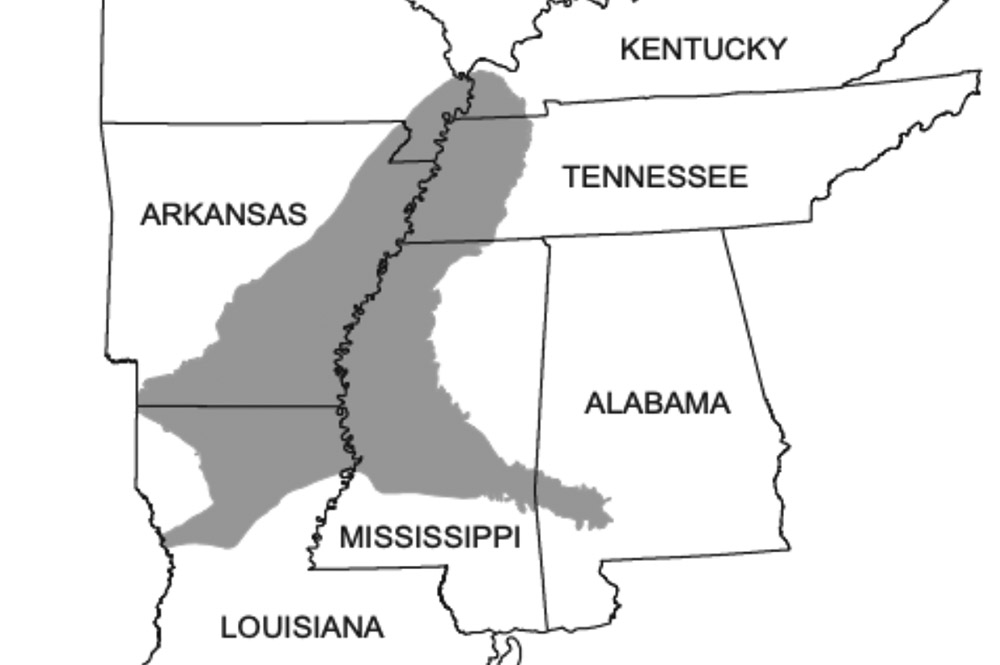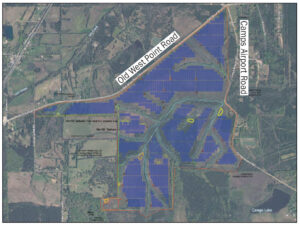Mississippi laid out an argument before the U.S. Supreme Court last week that could impact water law principles around the globe.
The state is seeking over $600 million in damages from neighboring Tennessee over what it sees as stolen groundwater. Since 1985, Mississippi claims, a Memphis public utility has pumped enough water from an interstate aquifer to force water from Mississippi’s side of the border into Tennessee.
The nation’s highest court has ruled on a number of disputes dealing with surface water in the past, such as two states fighting over use of the same river, but this is the first case to focus entirely on groundwater.
Law and water resource experts explained to Mississippi Today why the Supreme Court’s ruling could have wide-reaching effects.
First, the supply of groundwater in the world dwarfs that of surface water, which is already becoming less reliable due to climate change; about three-quarters of Mississippi’s water comes from groundwater.
Second, very few places around the world that share aquifers have any agreement over how to divide the resource.
“People, communities, countries are going to have to go to groundwater to meet their water needs, and they’ll eventually be pumping from the same aquifers on different sides of the border,” said Gabriel Eckstein, a professor and director of the Energy, Environmental, and Natural Resource Systems Law Program at Texas A&M University.
This case, he explained, will help inform places across the world on how to share groundwater.
“Well do I sue my neighbor, do I enter into a treaty with them, or do I ignore them?” Eckstein said.
For the most part, bordering states and countries have chosen the latter option. With this case, Mississippi is hoping to set a new precedent by staking ownership in the water under its land.
Physically, the evidence backs Mississippi’s claim, explained Robert Mace, a professor at Texas State University with a Ph.D. in hydrogeology.
“Tennessee’s pumping creates what we call a cone of depression, and that cone of depression reaches out across the state line,” Mace said. “The data clearly shows that the human intervention of (Tennessee’s) well field has impacted the groundwater flow in the aquifer and is pulling water from Mississippi into Tennessee.”
Conceptually, however, it’s unclear what the legal grounds are for Mississippi’s claims, as the justices expressed during last week’s oral arguments.
In past interstate water disputes, the Supreme Court has leaned on “equitable apportionment,” a set of principles that determine a fair allotment of water based on factors such as how many people need the water, what it’s needed for, conservation, climate, among others.
Tennessee, the special master — an outside expert the court appoints for highly technical cases — and the assistant to the solicitor general all argued that equitable apportionment should apply to this case as well.
But Mississippi chose to forgo that route for the time being, instead claiming ownership over the water that has flowed underneath Tennessee, an argument that the justices and other legal experts struggle with.
The justices, expressing confusion, made several analogies during the oral arguments to wrap their heads around the issue: If a pack of wild horses ran from one state to another, which state owns the horses? If a plane in the sky forced fog across a state boundary, could one state claim damages from the loss of its fog?
“The bottom line is that water flows,” said Buzz Thompson, a professor at Stanford University who served as Special Master for Montana v. Wyoming, a Supreme Court interstate water case from 2018. “It’s hard to say that you have a right to keep a molecule of water that’s underneath your state from flowing over under another state, unless you tell that state that they can’t pump.
“It’s hard to find very many legal experts outside of Mississippi that would say this is a reasonable and responsible way of resolving these types of disputes.”
Several states, led by Colorado, the International Law Committee in New York City, and various law professors from around the country all filed briefs against Mississippi, citing equitable apportionment as a reasonable solution.
A ruling in Mississippi’s favor would make it difficult to equitably divide groundwater in the future, Eckstein said.
“States will say, ‘This is how much we have, this is how much you have, I’m sorry you have just a small section of the aquifer, too bad. If you want, we’ll sell you some,’” he said. “It’s not an equity issue anymore, it becomes an ownership and market issue.”
You can help your community
Quality, in-depth journalism is essential to a healthy community. The Dispatch brings you the most complete reporting and insightful commentary in the Golden Triangle, but we need your help to continue our efforts. In the past week, our reporters have posted 43 articles to cdispatch.com. Please consider subscribing to our website for only $2.30 per week to help support local journalism and our community.







